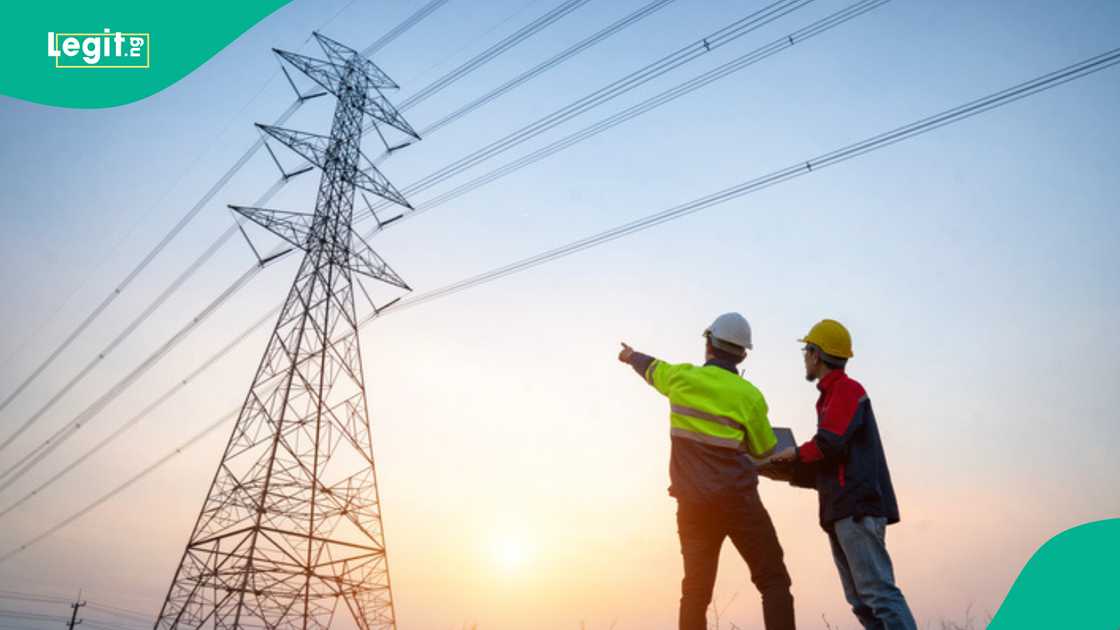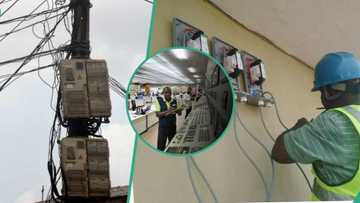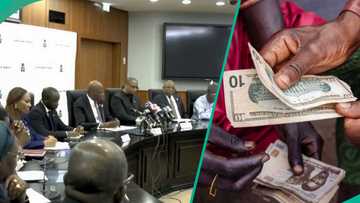Generating Companies React as Regulator Plans to Cut Electricity Tariff by N49
- Electricity generating companies expressed concern that the proposed Band A rate drop by the EERC will lead to further debt accumulation
- APGC CEO Joy Ogaji criticised the EERC's tariff adjustment, highlighting the lack of a clear FGN policy on subsidies
- Ogaji also pointed out that the federal government's budget for electricity support is insufficient to cover the sector's debts, which exceed N4 trillion
Legit.ng journalist Zainab Iwayemi has 5-year-experience covering the Economy, Technology, and Capital Market.
Under the auspices of the Association of Power-producing Businesses (APGC), electricity generation companies claim that the proposed Band A rate drop from the Enugu Electricity Regulatory Commission (EERC) will result in additional debt accumulation.

Source: Getty Images
The EERC announced in a statement on Sunday that it has authorised a new tariff for MainPower Electricity Distribution Limited, reducing the Band A cost from N209 per kWh to N160/kWh, a N49 reduction. The new rate is expected to take effect on August 1.
The new order, which the EERC defined as cost-reflective, was created to reflect the federal government's power generation subsidy, which covers only N45 of the actual cost of N112.
In a statement released on Monday, APGC CEO Joy Ogaji responded to the development, stating that the new rate imposed by the EERC sets a precedent for other states.
“It is imperative to state that there is no FGN policy on subsidies; it is debt accumulation,” she said. “If anyone has the proposed policy document, please share it publicly.”
From the EERC’s tariff order, The Cable reported that Ogaji said only N45 is captured for generation costs out of the actual N112.
“This points to a bigger issue in the decentralisation of power and electricity to the states,” she said.
“There are many pressing questions about dealing with obligations and liabilities (all legacy debts post-privatisation but before the exit to state independence) in the decentralisation discourse.”
“Does this position mean the EERC expects the FGN to continue subsidising their electricity? How does the EERC account for their share of the accumulated sector debt or are they assuming assets with no liabilities?”
“Shouldn't the EERC be designing its tariff to eliminate its dependency on the FGN and make its market more attractive for investors?”
Ogaji pointed out that only N900 billion was set aside in the federal government's 2025 budget for electricity support.
The amount, according to her, is not enough to cover the sector's annual generation invoices, which average N250 billion per month.

Source: Getty Images
Ogaji said that the N45 of generation cost that the EERC is assuming in their tariff setting, out of an average N112, means they are accounting for just 40 percent.
“Hence, 60% is left to be covered by the assumed FGN subsidy, which, for this year, is just N900bn and has not been cash-backed as of today,” she said. “This is a huge issue that needs to be addressed at the Presidency level.”
Ogaji reaffirmed that the total amount owed to Nigerian power-producing businesses exceeds N4 trillion.
She went on to say that there are no “workable solutions” to pay down the debt, including debt swaps, cash payments, or financial instruments.
List of areas to benefit as govt slashes tariff
Legit.ng reported that the Enugu Electricity Regulatory Commission (EERC) has announced a reduction in electricity tariffs for Band A customers in the state, effective from August 1, 2025.
According to a notice to MainPower Electricity Distribution Limited, the utility that succeeded Enugu Electricity Distribution Company (EEDC), Enugu residents under Band A will now pay N160 per kilowatt-hour (kWh).
The new tarrif represents a N49 from the previous rate of N2090/kWh.
Source: Legit.ng





